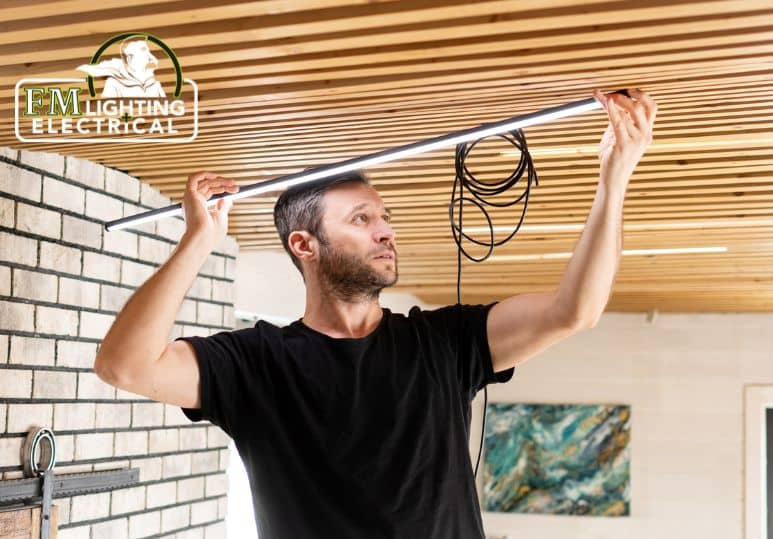Flickering or Dimming Lights
Flickering or dimming lights can be a sign of various underlying issues, some of which may require professional attention. While the occasional flicker due to a loose bulb or a minor electrical surge is common and can be easily addressed, persistent or frequent flickering and dimming may indicate more significant problems. There are several potential causes for flickering or dimming lights, ranging from loose wiring connections and overloaded circuits to faulty fixtures and aging electrical systems. Identifying the root cause requires expertise and diagnostic tools that a professional electrician possesses.
Ignoring persistent flickering or dimming lights can be risky. It may signal an underlying electrical problem that could lead to electrical fires, power surges, or damaged appliances if left unaddressed. Calling a professional electrician promptly can help diagnose and rectify the issue, ensuring the safety of your home and family.
Frequent Electrical Surges or Outages
Frequent electrical surges or outages can be disruptive and damaging. These issues may manifest as sudden drops in power, appliances unexpectedly turning off, or circuit breakers tripping frequently. Such occurrences can disrupt your daily life and pose potential dangers. The causes of frequent electrical surges or outages can vary, from faulty wiring and overloaded circuits to problems with your utility provider's infrastructure. Identifying the specific cause and implementing a solution requires the expertise of a professional electrician. Beyond the inconvenience, frequent electrical surges and outages can damage sensitive electronic devices and create electrical hazards in your home. Wiring problems, if left unaddressed, can increase the risk of electrical fires. To ensure the safety of your electrical system and prevent potential damage, consulting a professional electrician is essential.
Circuit Breaker Trips and Electrical Odors
A circuit breaker is designed to trip and cut off electrical power when it detects an overload or a short circuit, thereby preventing electrical fires. However, if your circuit breaker frequently trips, it's a clear sign of an underlying electrical issue that demands attention. Electrical odors, such as a burning smell or the scent of overheating wires, are serious warning signs. These odors may indicate overheated circuits, melting insulation, or electrical components nearing the point of failure.
Circuit breaker trips and electrical odors should never be ignored. These are clear indications of electrical problems that can lead to fires or other safety hazards. Attempting to reset a tripped breaker or investigating electrical odors without professional knowledge can be dangerous. Contacting a professional electrician is the safest course of action to identify and address the issue promptly.
When it comes to lighting repairs, safety should always be the top priority. While some minor issues can be addressed through simple DIY solutions, persistent problems like flickering or dimming lights, frequent electrical surges or outages, circuit breaker trips, and electrical odors demand the expertise of a professional electrician. By recognizing the signs and risks associated with these issues and taking prompt action to seek professional assistance, you not only ensure the safety of your home but also protect your family from potential electrical hazards. Remember, when in doubt, prioritize safety and call a professional for your lighting repairs.
Written on behalf of Fluorescent Man Lighting.
FAQs
Q: Is it safe to attempt DIY fixes for lighting problems?
A: While changing a light bulb or resetting a tripped circuit breaker is generally safe, more complex issues like wiring problems, frequent surges, or unusual odors should never be addressed through DIY fixes unless you have the necessary electrical expertise. Attempting DIY repairs in such cases can pose serious safety risks.
Q: Why is it important to address frequent circuit breaker trips promptly?
A: Frequent circuit breaker trips can be indicative of overloaded circuits, short circuits, or other electrical issues. Ignoring this problem can lead to electrical hazards, appliance damage, and potential electrical fires. Calling a professional electrician to investigate and address the cause is essential for safety.


.jpg)

.jpg)


